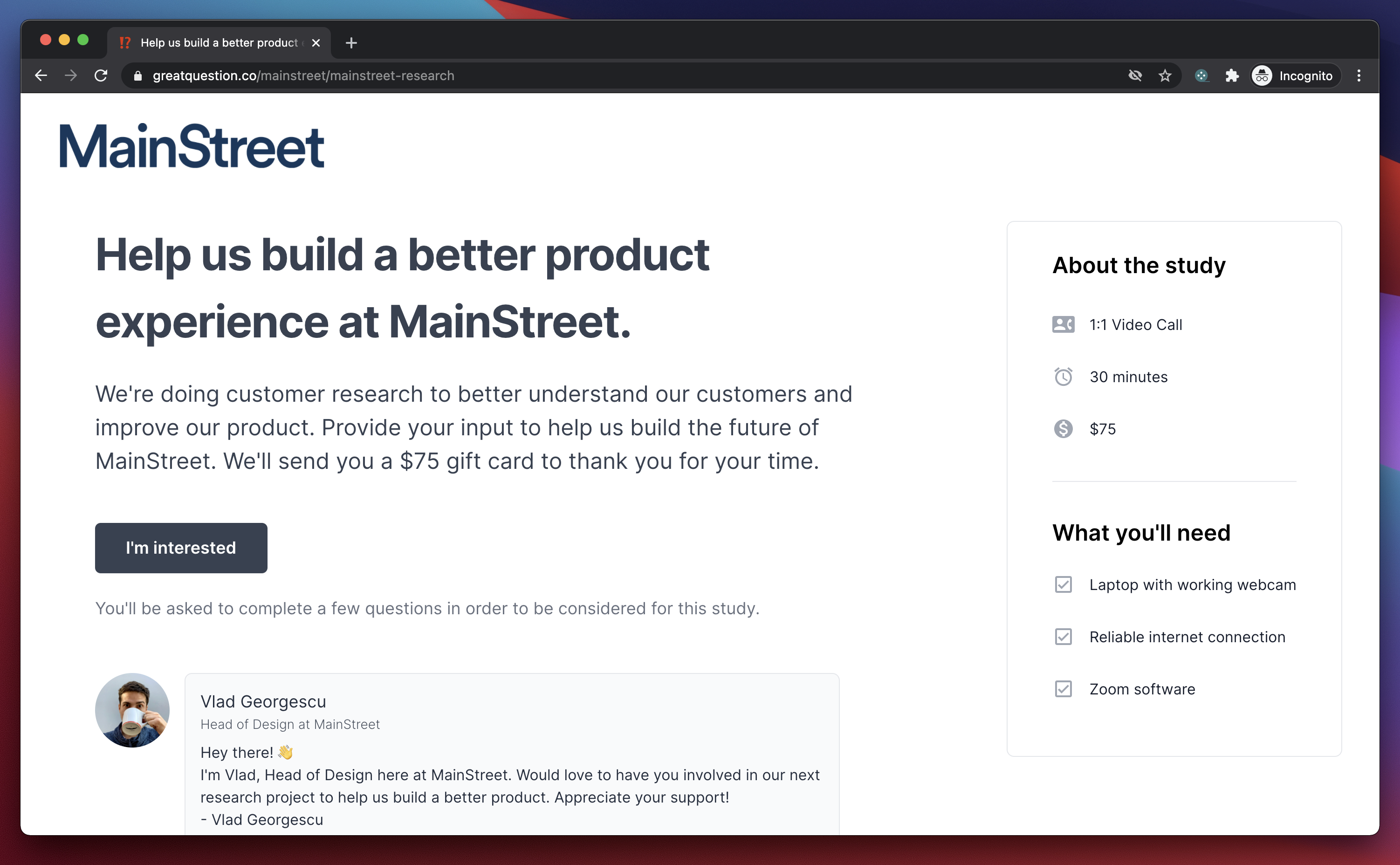
Customer research is invaluable for software companies, but there are many obstacles, like finding the right group of people to survey. Great Question wants to make building and talking to their own panels accessible to all companies, no matter their size. The startup, which was part of Y Combinator’s winter 2021 program, announced today that it has raised $2.5 million in seed funding.
Great Question launched in February 2021, and its clients include Linktree, Honeybook, O’Reilly Media and MainStreet. The platform has been used to interview customers about product ideas and strategy, find product-market fit, conduct usability studies on UX designs and see how well marketing landing pages perform. Great Question’s seed round came from investors including Funders Club, January Capital, Nomo VC and Twenty-Two Ventures. Angel investors like Warren Hogarth, co-founder of Empower Finance; Jon Williams, co-founder of Culture Amp and Pyn; Jason Smale, senior vice president of engineering at Zendesk; and Robbie Allan, former group product manager at Intercom also participated.
Before founding Great Question, PJ Murray and Ned Dwyer sold their last startup, web developer marketplace Elto, to GoDaddy in 2015. In an email, Dwyer told TechCrunch that they did very little formal research at Elto. “We would talk to customers, but it wasn’t structured or consistent.”
GoDaddy Acquires Marketplace Startup Elto To Expand Its Services For Web Pros
After joining GoDaddy, however, they became “a lot more rigorous in our approach to building product — we suddenly had a much larger audience, a bigger team and aggressive targets.” Murray and Dwyer also had the advantage of working with GoDaddy’s UX research team.
The two saw an opportunity to make customer research more accessible to product development teams. Dwyer said that if companies outsource to a large UX research provider, the starting price can be $40,000 a year. On the other hand, Great Question’s freemium pricing model includes paid subscription plans for $49 and $199 a month.
Great Question has almost all of the things needed for customer research — survey smart templates, prototype tests, scheduling tools and transcription — in one place, so teams can share information easily. One of its most important features is customer recruitment and filtering tools. Dwyer explained that many UX research companies sell access to panels they have already built. That means clients often get feedback from relatively homogenous groups of people who are not their target customers — for example, college students or stay-at-home parents who signed up to answer surveys so they can earn extra cash or gift cards.
Great Question builds custom landing pages where users can opt into panels, decide what kind of research they want to participate in and how often they are willing to answer questions (for example, the platform automates rolling studies, sending questions to different groups of customers every two weeks). Great Question lets its clients integrate incentives programs, such as Tremendous, to compensate participants with cash or gift cards. But many of the people who participate in research through Great Question are motivated because they want to have a say in products they are already using, or find out first about upcoming releases, Dwyer said.

Once customer panels are created, Great Question provides smart templates for surveys or interviews and automatically schedules them for distribution. This saves clients time. For example, MainStreet approached Great Question when it was preparing to release a product that would change its onboarding flow. The startup, which lets small businesses find and claim tax credits and economic incentives, didn’t have time to perform customer research before the launch. “Within 24 hours of signing up to Great Question they’d booked eight customer interviews — this was over Christmas mind you — and got the usability feedback they needed to iterate on the designs before they went to production,” said Dwyer.
In a statement about the investment, Funders Club co-founder and chief executive officer said Alix Mittal said, “Even the best product and business teams know everyday iteration, large pivots and new launches can be hit or miss. We backed Great Question because they provide the missing tool to effortlessly incorporate customers into product and business decisions and to never miss the mark.”
User Interviews, the CRM for qualitative user research, raises $10 million Series A






























Comment